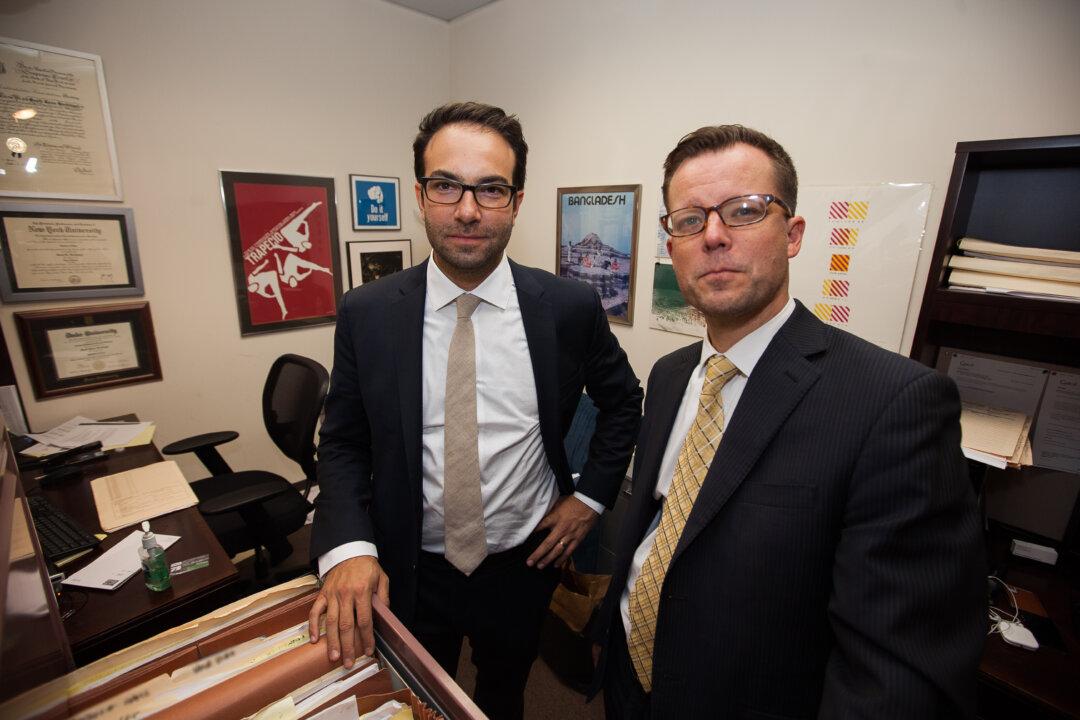Brooklyn Charity Fund Seeks to Help People Too Poor to Afford Bail
Nonprofit Will Keep the Accused Out of Pre-Trial Detention

Josh Saunders (R) and Scott Hechinger (L), public defenders and co-founders of the Brooklyn Community Bail Fund, in Hechinger‘s office at the Brooklyn Defender Services, Downtown Brooklyn, New York, on Nov. 5, 2014. Brooklyn Defender Services is a public defender office that offers legal and social services to the indigent. Petr Svab/Epoch Times
|Updated:
Annie Wu joined the full-time staff at the Epoch Times in July 2014. That year, she won a first-place award from the New York Press Association for best spot news coverage. She is a graduate of Barnard College and the Columbia University Graduate School of Journalism.
Author’s Selected Articles




